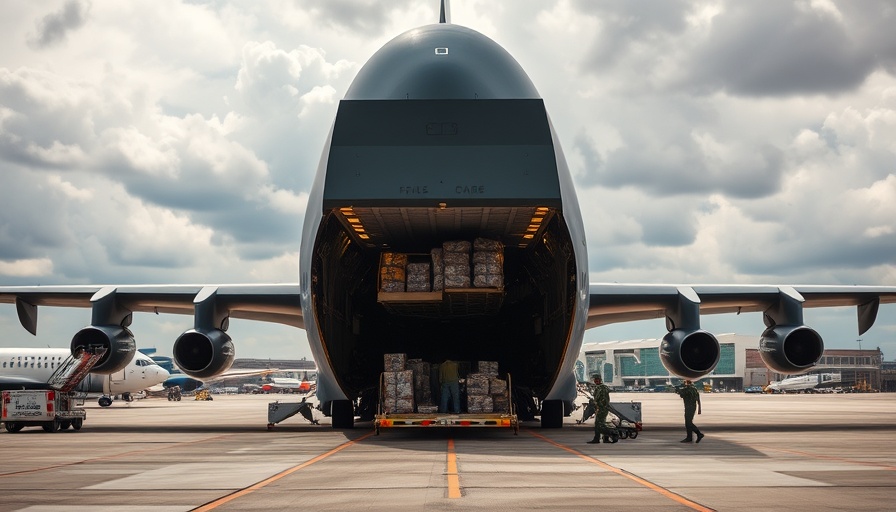
The Growing Tension: US Military Support to Israel
In recent developments, it has been reported that the United States has sent two Patriot missile batteries and one Terminal High Altitude Area Defense (THAAD) battery to Israel. This military reinforcement arrives at a time when tensions are escalating between the US and Iran, particularly following former President Trump’s ominous warning to Tehran about impending military actions.
The Factors Behind the Deployment
Trump's rhetoric, threatening 'bombing the likes of which they have never seen', underscores the serious nature of the current geopolitical climate centered around Iran. The Iranian military has issued calls for preemptive strikes against US bases, which raises concerns about the possibility of military confrontations that could have severe implications not just for Israel, but for the entire region.
The Strategic Importance of Iron Dome and THAAD Systems
The recent deployment of these advanced missile defense systems is not just a show of force; it is a crucial element in protecting Israel from potential ballistic threats from Iran and its allied proxies in the region. The THAAD and Patriot systems are designed to intercept and destroy tactical and strategic missiles, thus boosting Israel’s defense mechanism greatly.
Historical Context: US-Israel Relations
The introduction of the THAAD and Patriot systems is reminiscent of previous US military support endeavors in the region. Historically, the US has played a pivotal role in bolstering Israel’s military capabilities as part of its broader strategy to maintain stability in the Middle East. This military aid is particularly significant given the context of the 2015 nuclear deal with Iran and subsequent withdrawal by the Trump administration.
What This Means for the Future
As military tensions rise, the support from the US to Israel could be an indicative step towards a more aggressive posture against Iran. Observers might view this as not only a defense strategy but also a political maneuver in the ongoing negotiations over Iran’s nuclear program.
The Impact on Christian Organizations and Advocacy Groups
For mission-minded individuals and Christian advocacy groups, the implications of this military shift are profound. Many see Israel as key in the narrative of biblical prophecy and as a significant ally in the fight against religious persecution in the region. Understanding these dynamics is crucial for informed advocacy on behalf of both Israeli and Christian interests within the region.
Call for Reflection and Action
The current situation calls for heightened awareness and reflection among Christian communities and humanitarian groups. Engaging in interfaith dialogues and advocacy for peace remains vital. As tensions heighten, it’s essential for believers to pray for peace and support efforts focusing on humanitarian aid and dialogue.
 Add Row
Add Row  Add
Add 








Write A Comment